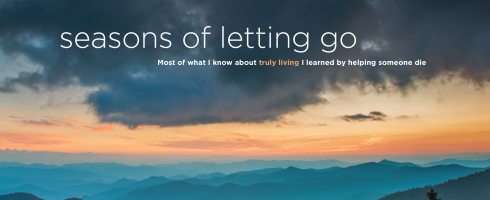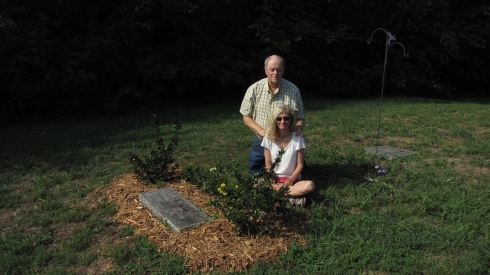Tomorrow I turn 50. This afternoon I got a birthday message from Laura, a younger friend I met in Switzerland around the time I turned 40. Over the years I’ve known her, Laura has had many ups and downs and now has created a successful culinary business for herself on a Swiss farm. We have only been together twice, but shared a deep connection and enjoyed comparing notes about how to deal with life’s challenges. After an initial greeting, her opening words were these:
 “I often think about you and imagine you are happy. 50 now… I remember last time when you were 40. Loads of questions and thoughts about life: How is it today? How did these past 10 years help you find peace and answers?”
“I often think about you and imagine you are happy. 50 now… I remember last time when you were 40. Loads of questions and thoughts about life: How is it today? How did these past 10 years help you find peace and answers?”
Wow! These immense, broad questions came to me at just the right moment, as I’d already been formulating the vague idea for a blog to reflect on the past decade in some comprehensive way.
My 40s were incredible, and I migrated through many changes, the culmination of which was the death of my mom, and the realization that she was the true love of my life – even as I was flitting about on several continents during my stint in the travel industry. Finally going home to Kentucky to help her die was the best decision I ever made and although I didn’t do it perfectly, I was strong and I helped her live her last days the way she wanted to.
 In 2013, I sold a house, moved, rented for six months, got a part-time job, and then bought a house and renovated it… all of which have led me to my current situation, a new resident of Asheville, NC, still recovering from loss, but growing stronger as I connect with my new community, and find my niche socially and professionally.
In 2013, I sold a house, moved, rented for six months, got a part-time job, and then bought a house and renovated it… all of which have led me to my current situation, a new resident of Asheville, NC, still recovering from loss, but growing stronger as I connect with my new community, and find my niche socially and professionally.
What follows is a collection of salient lessons from the past decade, each supported by a favorite quote.
LESSON 1: LOVE YOURSELF
“The most important relationship you have in life is the relationship you have with yourself.” ~Diane von Furstenberg
 Last year’s birthday came at a time when I was still grieving the loss of my mom so heavily that I expected others in my life to somehow compensate for the internal void of having no parent left to celebrate my life in the way that only parents can. I learned then the final lesson of independence: that I really needed to only have expectations of my own self, and to face the fact that I was truly alone – and be OK with that. And that helped me to focus on my relationship with myself more in the past year than I ever had previously.
Last year’s birthday came at a time when I was still grieving the loss of my mom so heavily that I expected others in my life to somehow compensate for the internal void of having no parent left to celebrate my life in the way that only parents can. I learned then the final lesson of independence: that I really needed to only have expectations of my own self, and to face the fact that I was truly alone – and be OK with that. And that helped me to focus on my relationship with myself more in the past year than I ever had previously.
LESSON 2: LOVE OTHERS
“The beginning of love is to let those we love be perfectly themselves, and not to twist them to fit our own image. Otherwise we love only the reflection of ourselves we find in them.” ~Thomas Merton
This is only common sense, but with those expectations mentioned in the first lesson always creeping into relationships, keeping the right attitude toward love of any kind can be a challenge. It’s good to be reminded day after day that what we love about others is what makes them different from us and it our not our job to shape them or mold them into something we think is best for them – or for us. I think I finally learned this lesson during my 40s and am ready to practice it well in the next decade.

LESSON 3: ACCEPT WHAT IS
“Stop resisting. So much of our anguish is created when we are in resistance. So much relief, release and change are possible when we accept, simply accept.” ~Melody Beatty
During my 40s, I think I adopted a more natural acceptance of reality, learning more about not pushing for things but allowing them to come to me organically. A huge lesson of grief is the acceptance that you cannot change what has happened, what is. Learning to relax into the “luxury of grief” and allow it to consume you for a period of time is actually healthy, and takes you on a tour through all of your emotions so that none is left unvisited – and then you are ready to move on, to move forward.
LESSON 4: BE HERE NOW
 “If you no longer want to create pain for yourself and others… then don’t create any more time… realize deeply that the present moment is all you ever have. Make the Now the primary focus of your life.” ~Eckhart Tolle
“If you no longer want to create pain for yourself and others… then don’t create any more time… realize deeply that the present moment is all you ever have. Make the Now the primary focus of your life.” ~Eckhart Tolle
I can’t stress enough how much reading Eckhart Tolle helped to shape my outlook during my 40s. It was like a homecoming finding his writing, because so much of what he says, I feel I’ve always operated on, and just thought that no one else was like me. These were lessons hard-learned and I made plenty of mistakes, but meditation and focusing on the Now helped me prepare to help my mom die, and live through it and on beyond it with a new enthusiasm for life.
LESSON 5: BE STILL
“It is said that all you are seeking is also seeking you, that if you lie still, sit still, it will find you. It has been waiting for you for a long time. Once it is here, don’t move away. Rest. See what happens next.” ~Clarissa Pinkola Estes
As a natural progression of learning not to push so hard for what you want and to accept what is, there comes a realization that you are moving toward things as they are also moving toward you – that its not up to you to facilitate getting there yourself; the movement is one greater than you can orchestrate. This doesn’t mean do nothing; it means be open, listen and conserve energy in preparation for what is coming rather than spending it all. A great convergence is occurring and things are being worked out that you cannot imagine. So be still.

LESSON 6: BE IN NATURE
“I have passed the Rubicon of staying out. I have said to myself, that way is not homeward; I will wander further from what I have called my home – to the home which is forever inviting me. In such an hour the freedom of the woods is offered me, and the birds sing my dispensation. In dreams the links of life are united; we forget that our friends are dead; we know them as of old.” ~Henry David Thoreau
Time in nature I always find to be my greatest teacher. Moving to Asheville was largely about connecting to natural areas and a sustainable lifestyle that values the environment. From my base in my new home here in the mountains, my intentions are set to contribute personally and professionally to the health of our natural resources, our true home. Through moving in this realm I know I will be comforted and cared for in many ways yet unforeseeable.

LESSON 7: BE ALONE
“To make the right choices in life, you have to get in touch with your soul. To do this, you need to experience solitude, which most people are afraid of, because in the silence you hear the truth and know the solutions.” ~Deepak Chopra
I remember at a younger age a feeling that for any experience to be truly meaningful, I had to share it with someone. As I’ve aged, I’ve become more and more comfortable with having amazing solo experiences, and enjoying them just for me, not even telling anyone about them. But this took a long time for me. As an only child, it was a hard lesson; I wanted to always be with others. This past year I’ve been alone more than ever before, and now I even have my own house. I confess I’m happier when others are visiting, but my alone time does provide many answers and insights. I feel I have more balance in this respect now than ever before.
LESSON 8: GROW
“No problem can be solved from the same level of consciousness that created it.” ~Albert Einstein
As we continue to evolve into higher consciousness and greater awareness, we find ourselves able to tackle challenges that previously seemed beyond our grasp. Lessons learned become the foundation for new ways of taking care of our self, interacting with others and moving through our sphere of existence. Suddenly some things that always seemed hard in the past are now parts of everyday life. This is growth.

LESSON 9: EMBRACE SURPRISES
“So hold your head high
and don’t be afraid
to march in the front
of your own parade
If you’re still my small babe
or you’re all the way grown
my promise to you
is you’re never alone
You are my angel, my darling, my star
And my love will find you, wherever you are.”
~Nancy Tillman from “Wherever You Are, My Love Will Find You”
Whenever I have extra time at my job at The Compleat Naturalist, I take a moment to read some of our wonderful children’s books. Many of them remind me of the love of my parents, and none more so than “Wherever You Are, My Love Will Find You.”
I had thought that once I found romantic love again, I would be so sad that my new partner could not meet my parents or know them that it would make the relationship somehow impossible. But something happened that I could never have imagined.

I met someone who loves me in so much the same way that my parents did, that it is as if this person was sent to continue that deep connection – and that through him, their love has found me. So what I thought would be a desire for them to have met each other is transformed into a serendipitous feeling that they are the same energy, and know one another through understanding and loving me. This is a form of being surprised by joy that I could never have anticipated. I feel that all the other lessons somehow prepared me to be open for this one!

LESSON 10: KEEP MOVING FORWARD
“Inner strength comes only to those who move forward in the face of adversity.” ~ Phil Stutz & Barry Michels in “The Tools”
The Andean Torrent Duck spends its entire life swimming upstream against a strong current. You can see some cool video of it in the PBS nature movie “An Original Duckumentary.” This species, now in decline due to pollution, forest destruction and hydroelectric damming, really inspires me! No matter what your passion or intuition, it’s all about picking a path and moving forward on it… whether you’ve got the perfect plan or not. Sometimes going out on a limb will create adverse situations, but learning to persevere through the storms will make us stronger – and help us appreciate the calmer days.

LESSON 11: DON’T FEAR MISTAKES
“I hope that in this year to come, you make mistakes. Because if you are making mistakes, then you are making new things, trying new things, learning, living, pushing yourself, changing yourself, changing your world. You’re doing things you’ve never done before, and more importantly, you’re Doing Something. So that’s my wish for you, and all of us, and my wish for myself. Make New Mistakes. Make glorious, amazing mistakes. Make mistakes nobody’s ever made before. Don’t freeze, don’t stop, don’t worry that it isn’t good enough, or it isn’t perfect, whatever it is: art, or love, or work or family or life. Whatever it is you’re scared of doing, Do it. Make your mistakes, next year and forever.” ~Neil Gaiman
 My closest girlfriend in my new town I met through my time in Costa Rica with Bruce Smith of Seascape Kayak Tours. Nina is a constant inspiration and has given me a great deal of emotional support in my new life here. She posted this quote before the dawn of 2014, but it is apt for the eve of a new decade for me as well. It sums up much of the feeling behind this blog, in that I intend it to be helpful to others, and in no way to say that I have not made tons of mistakes along the way. I have made them… and I encourage you to make them too. And then forgive yourself, and move forward.
My closest girlfriend in my new town I met through my time in Costa Rica with Bruce Smith of Seascape Kayak Tours. Nina is a constant inspiration and has given me a great deal of emotional support in my new life here. She posted this quote before the dawn of 2014, but it is apt for the eve of a new decade for me as well. It sums up much of the feeling behind this blog, in that I intend it to be helpful to others, and in no way to say that I have not made tons of mistakes along the way. I have made them… and I encourage you to make them too. And then forgive yourself, and move forward.
50, here I come.
Photos by Joe Lamirand, John Beaudet, Frances Figart
Tags: Albert Einstein, Clarissa Pinkola Estes, Deepak Chopra, Diane von Furstenberg, Eckhart Tolle, Frances Figart, Henry David Thoreau, Melody Beatty, My Love Will Find You, Nancy Tillman, Phil Stutz & Barry Michels, The Compleat Naturalist, The Tools, Thomas Merton, Wherever You Are






























































Recent Comments